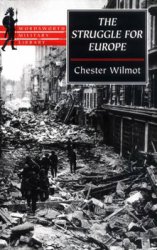Under the demanding dictates of their tutorial head, military radio corps-men had already absorbed their fill of Marconi, his Technology, and his tyrannical sway. They had in fact, thought themselves adequately schooled in every aspect of his burgeoning art to now divorce themselves from his Company, their original intent, and privatize their own radio systemologies. Now the “M” on the flag of their loyalties would no longer stand for “Marconi”, but for “Military”. Therefore the divorce was engaged, not without some difficulties from the legal-minded Marconi, but nonetheless successful and complete. This split, no doubt the result of bureaucratic maneuvers at higher levels, was viewed as the first step toward achieving a Military Radio Network
Capable of serving the bureaucratic needs of military forces, wherever in the world, and receiving a steady flow of superior directives from the geopolitical House command central. Military personnel desired complete separations between themselves and the Industrial enterprises. They valued and intensified this separation with time, as military radio secrets remained the exclusive property of military engineers. It was thus that military radio projects began their long covert history.
It was because of this secrecy and the privatization process which so characterized the military, that a command directive placed Intelligence Officers everywhere within military bureaucracy. Intelligence reports represented the presence of rulership within the secretive halls of military deliberations for a reason. Thus it was that Intelligence Agencies and Military began their tense relationship, one intended to insure that the commands of rulership would indeed be obeyed and enforced. Ultimately, Intelligence themselves would seek private communications systems which would be completely secretized, divorced from the military from whom they would now learn the secret art.
The years following military departures from Marconi Company were not creative ones. For all their time under the coy Marconi, handpicked cadet trainees were found incapable of developing any original and new themes by which to advance the radio art. This critical time period provoked an uncommon response from leadership, one which we have already mentioned as an unwilling concession to civilian hirelings. But the circumstcince and the pressing needs which the world had imposed upon them would now press their unwillingness into a tense dialogue. This dialogue, this deadlock, between experimenters and military leadership, formed the traditional confrontation of powers which has forever defined their sometimes rocky relationship. The experimenters themselves contained and consolidated the creative power. The ability to invent And the military knew it The employment of private experimenters and systems designers began.
Experimenters who neither wished to engage, nor be engaged by the military elite, would not be dissuaded from their own secure positions. For these services, the military were required to pressure their demands further in a great number of ways, the misuse of exceptionally personal information notwithstanding. Experimenters who offered their too independent attitude, an independence of action which irked military superiors, were often dealt with in a less “kind” manner. Soon, special liaison personnel, often out of uniform, encouraged talented academes and privateers to work on their behalf. These small bureaucratic concessions preserved both the aristocratic poise of senior officers and the sometimes flamboyant independence of the researchers. It wcis this very independence however, through which the superior and manifest creativity had flourished. Of this there could be no doubt, the working class mind held he secret to systems In this somber awakening it was inwardly acknowledged that the consortium of working class experimenters sustained a commodity which the highly groomed military elite could never produce.
Eventually, the awkward and threatening gestures between military and researcher grew into a working relationship whose rewards were shared by those engaged in the various projects for which they were hired. The employment of working class experimenters was indeed, not disappointing at all. In fact, these experimenters built the military systems on which leadership so relies. A steady line of military-tailored radio systems were developed between the early World Wars of the Twentieth Century, a proliferation of wave radio systems predicated on an unfortunate first step into error. The consequences of this first step into inferiority would require decades before the error could even be recognized.
During the years following World War I, there were several critical Military Radio developments which completely distanced them from their former Marconi affiliation. First, a commission was established by the Federal Bureau of Standards to learn all about radio signal propagation across both the Atlantic and Pacific. The thoroughly academic study engaged propagation characteristics covering a broad radio frequency spectrum, one which began with tests in the deep VLP and proceeded up into the available UHF band. These tests provoked the design and redesign of numerous antennas, transmitters, vacuum tubes, receiving sets, and an unbelievable flood of highly improved radio components. Indeed, it was during the wondrous years before the Second World War that a great military indulgence of civilian research schemes was given funding on the chance that, all possibilities being equal, some great new development could make its unexpected appearance. New affiliations and industries were spawned and proliferated in this beneficial interchange, a thoroughly productive and zealously patriotic time period. Indeed, the military now found their research atmosphere so admired by the experimenter-privateer, that they themselves could begin enunciating the terms of their relationship with far greater command once again.




 World History
World History









